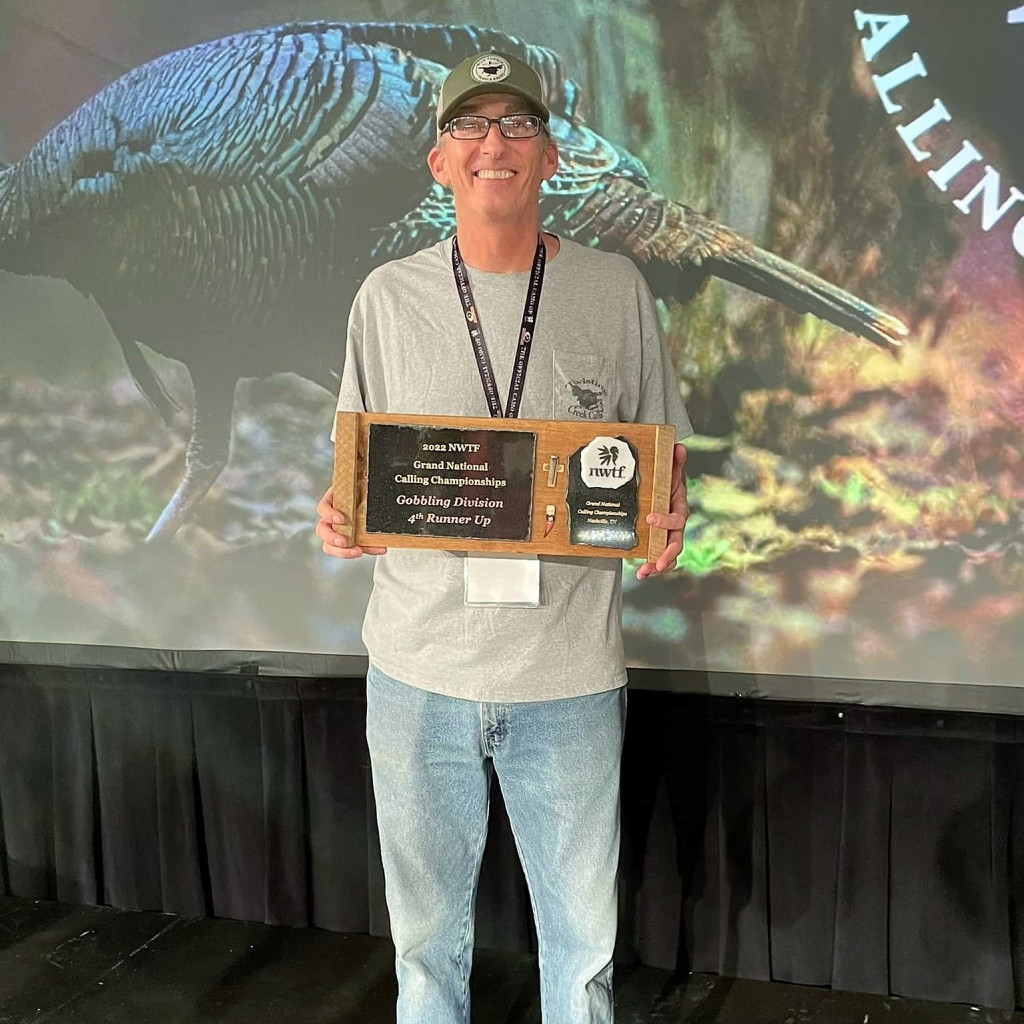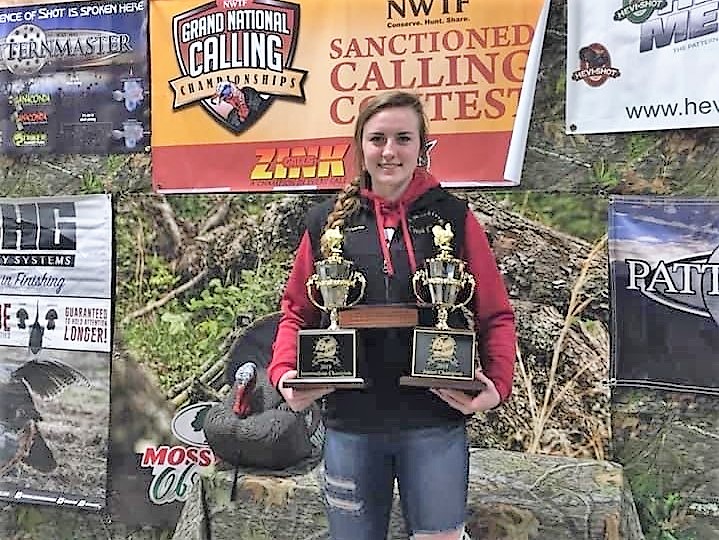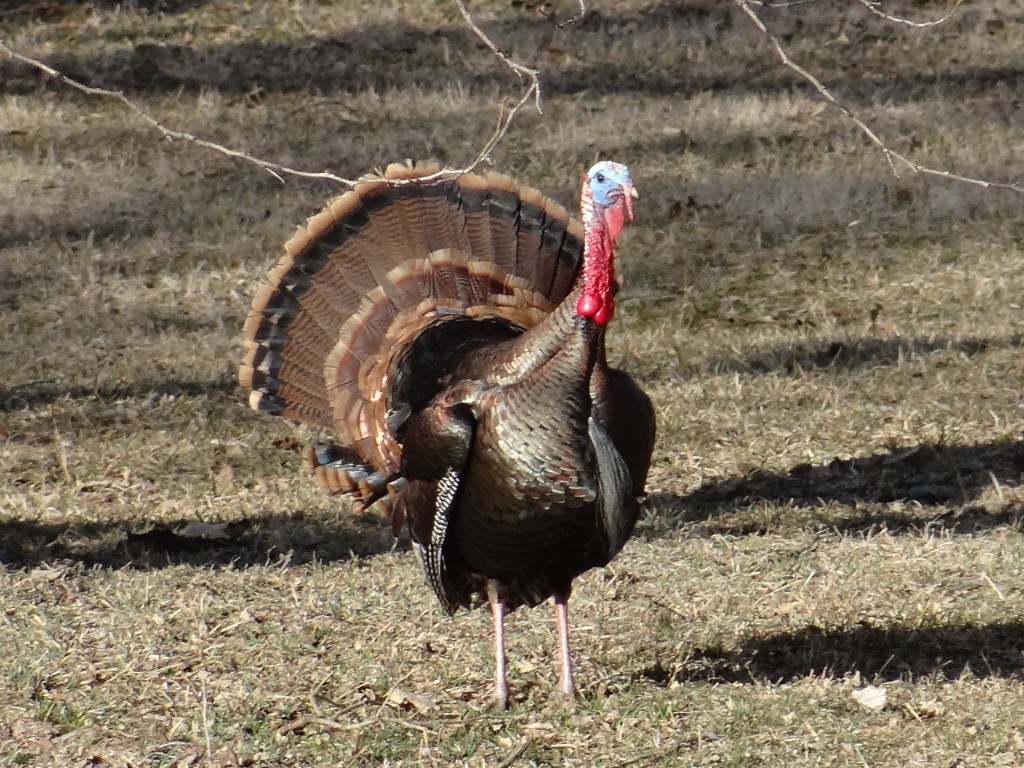Spring wild turkey hunting all about the “talk.” Really, it is about communication.
You, the turkey hunter, make the sounds of a sexually appealing hen and the interested, aroused toms gobble back. Very simply, you are talking to that bird. Now, what you are saying, how you are saying it and when you are saying it is the source of much discussion in turkey hunting circles. So, that being stated, I reached out to Douglas Herman of Wahoo, NE, a renown, champion turkey caller, custom call maker and turkey hunting guide with an impeccable resume and impressive collection of competition calling hardware, to offer advice about calling male wild turkeys close enough to shoot in the spring seasons.

I want to add that his daughter, Gracie Herman, is also a champion turkey caller.

Here’s what Douglas wrote to me about turkey calling:
Well as a competitive (wild turkey) caller, I practice all the time, year-round but I understand not everyone is like me.
Here’s my advice:
Watch videos, listen to the real thing. When getting ready for the spring wild turkey hunting season I find the best way to practice is with how-to, YouTube videos or even going out to the woods and listening to the real thing. Never, ever practice your calling to the birds you intend to hunt. All you will do is educate them and destroy your chances at success when the season opens. If you are fortunate enough to have a large flock to observe, do so. However, take out your phone or a good video camera and record them from the limb to the fly down. Assembly yelping most hens will work this time of year.
Learn turkey vocalizations. Learning to “talk turkey” is all in the details. Turkeys are chatty. They communicate with emotions in their vocalizations. That realism will increase your chances to cancel a permit. Pay attention to what’s happening when you hear certain vocalizations, as turkeys do not call to “just call.” They have a reason for what they’re doing. They are highly social and have a dialogue back and forth all the time. Yes, they talk to each other and have an extensive vocabulary. Learn all you can about wild turkeys, their biology and the calls they use and your chances will dramatically increase for success. The sounds a wild turkey makes can be found on the National Wild Turkey Federation’s website at this link: https://www.nwtf.org/hunt/wild-turkey-basics/turkey-sounds
Say the right thing. I know this is supposed to be about practicing your calling for the spring seasons but how can you practice if you don’t know the lingo and sound right. I’ve actually heard people alarm putt when a bird was fast approaching and totally blew the hunt. When they ask me what happened I tell them they alarm-putted. No matter how much you practice turkey calling if you’re not speaking correctly or saying the right thing, you will never be good at it. If you want to be a better caller then understand and properly apply the language. Know the various calls turkeys emit, and speak to the birds on their level. Talk to the turkeys instead of just making noises. Listen closely to what they’re saying and when they’re saying it. Remember this: “Just because I can strum a guitar doesn’t mean I can play a tune.” It is the same with turkey calling. Play the caller; sing them a tune. Be natural.
Start softly. Don’t walk into the woods and begin calling loudly. Learn to cluck well. Start your calling with simple, subtle clucks or plain yelps. Most people run off more birds than they ever realize because they simply call way too loudly, especially yelp way too loudly, and appear out of place in the woods.
Practicing your calling is excellent, but learning and applying the language will benefit you way more in the woods. In addition, keep in mind the only thing a gobble call does is give away that tom turkey’s location. After that, you want to move his feet and not his beak.

Good luck, great hunting to you and be safe out there! DH

The post Turkey Talk with a Top Caller appeared first on Nebraskaland Magazine.
















